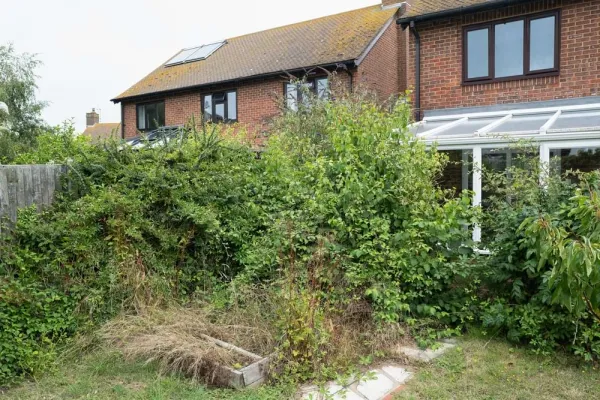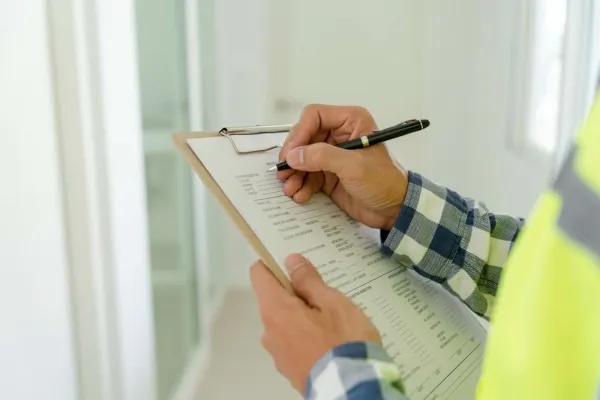House surveys are an essential part of selling a house.
Often, a survey can reveal problems with a house that the owner either hid or didn’t know about.
RICS surveyors often complete these surveys. Read on to find out more about them.
What is a RICS surveyor?
A RICS surveyor is someone registered with the ‘Royal Institution of Chartered Surveyors’.
This independent organisation is recognised worldwide and enforces industry-leading standards in the property industry.
Surveys are usually requested by buyers who want to know about the house’s condition.
Mortgage lenders might also request them to ascertain whether a property is worth lending on.
RICS-qualified surveyors’ qualities
If a surveyor is registered with RICS, it means that they should be:
- Highly trained
- Knowledgeable of local markets
- Independent.
What do RICS surveyors look for?
RICs surveyors look for a range of issues on properties.
These issues are related to the quality and value of a property. For example:
- Structural issues
- Flooding threat
- Energy efficiency
- Damp.
And more.
Some of these are issues that homeowners can fix themselves, others may require professional support.
Levels of RICS surveyors
There are three levels of membership to RICS. An ‘associate’ has an entry-level membership.
A ‘member’ will conduct surveys and must adhere to the organisation’s code of conduct. A ‘fellow’ will often be brought in for special projects.
Level 3
A ‘Level 3’ RICS survey is the most in-depth type. It involves an assessment of a property’s condition and reporting back to the person who requested it.
Level 2
A ‘Level 2’ RICS survey is slightly less detailed but still covers all the essential aspects of the house.
Level 1
A ‘Level 1’ RICS survey is also known as a ‘condition report’. It only covers the visible condition of the house and any minor defects that could need attention.
How do I find out if a surveyor is RICS?
The Royal Institution of Chartered Surveyors has a database of all its registered members. You can use this to search for RICS surveyors.
You can search by name, membership number, or any other information associated with the profile. You could also ask your surveyor directly.
Can I trust a RICS surveyor?
Yes. The Royal Institution of Chartered Surveyors is an independent organisation and thus non-biased in its reports.
This means that they have no agenda when giving you an estimation of your property’s worth.
Most people opt to bring in an RICS professional when completing a survey.
It ensures that they are impartial and not likely to exaggerate the house’s condition. They’ve also been well-trained and are knowledgeable about local market conditions.
You can always get a second opinion if you are uncertain about an RICS survey.
It might be worth checking their reviews before hiring them to see what past customers have said.
How to find a RICS surveyor?
Most RICS surveyors will often advertise themselves as such. There are businesses registered with RICS that will also be listed on the database.
When you speak to a surveyor, you should ask them if they’re RICS qualified. This often doesn’t apply to an estate agent.
Be prepared to look elsewhere, don’t automatically trust their opinion on your house’s condition.
How much does a RICS surveyor cost?
As mentioned above, there are three levels to a RICS survey. Level one is the least expensive and costs around £400.
A level two survey costs £500 on average, while you’d expect to pay £750 for a level three survey.
Can I be forced to use a RICS surveyor?
If you don’t want to buy or sell a house, you can’t be forced to use a RICS surveyor.
But you can also be forced to do this by a bank if you want them to lend you money.
This is because they need to be sure about the house’s condition. An impartial opinion reassures them that it’s a safe investment for them.
What are the advantages of using a RICS surveyor?
Using a RICS surveyor can give enormous peace of mind to everyone involved.
Your buyer will get a report that outlines the condition of your house. And your lender will place more trust in this professional’s opinion.
RICS surveyors are required to have insurance. This protects you if things go south and a claim is made. You often don’t get this protection with a surveyor who isn’t from RICS.
You can also utilise the RICS complaints procedure if you are unhappy with the service you receive.
Are there disadvantages to using a RICS surveyor?
A RICS surveyor will usually be pricier than someone not registered with RICS. This is because you get a higher-quality report from an impartial expert.
If it spots issues that would otherwise be missed, it could be more cost-effective in the long run.
It also depends on the level of survey you pay for. Some people feel that a level one survey doesn’t give value for money as most of its findings are obvious.
You’ll see some experts who suggest that you always get a level two or three survey.
















